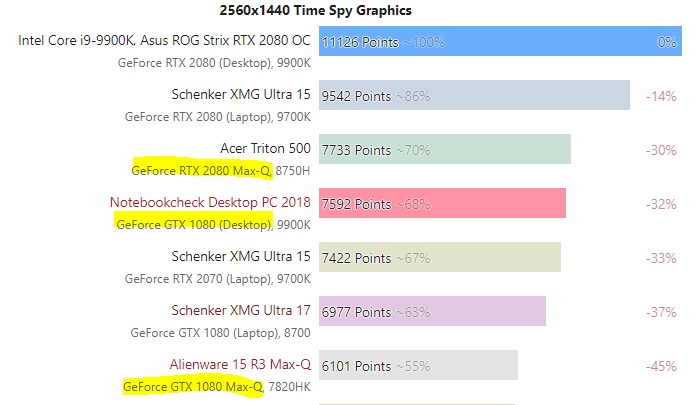- Joined
- May 22, 2015
- Messages
- 14,421 (3.88/day)
| Processor | Intel i5-12600k |
|---|---|
| Motherboard | Asus H670 TUF |
| Cooling | Arctic Freezer 34 |
| Memory | 2x16GB DDR4 3600 G.Skill Ripjaws V |
| Video Card(s) | EVGA GTX 1060 SC |
| Storage | 500GB Samsung 970 EVO, 500GB Samsung 850 EVO, 1TB Crucial MX300 and 2TB Crucial MX500 |
| Display(s) | Dell U3219Q + HP ZR24w |
| Case | Raijintek Thetis |
| Audio Device(s) | Audioquest Dragonfly Red :D |
| Power Supply | Seasonic 620W M12 |
| Mouse | Logitech G502 Proteus Core |
| Keyboard | G.Skill KM780R |
| Software | Arch Linux + Win10 |
Yes, but that's what I meant. We don't know how much DXR eats into the TDP. Without DXR those cards could boost significantly higher than with it turned on. I hope I worded it better now.DXR does not eat into TDP unless it is used.




 If you need more out of the card, don't enable RT for the significant FPS drop. It has little (nothing?) to due with TDP but everything to do with the performance impact of RT.
If you need more out of the card, don't enable RT for the significant FPS drop. It has little (nothing?) to due with TDP but everything to do with the performance impact of RT.


